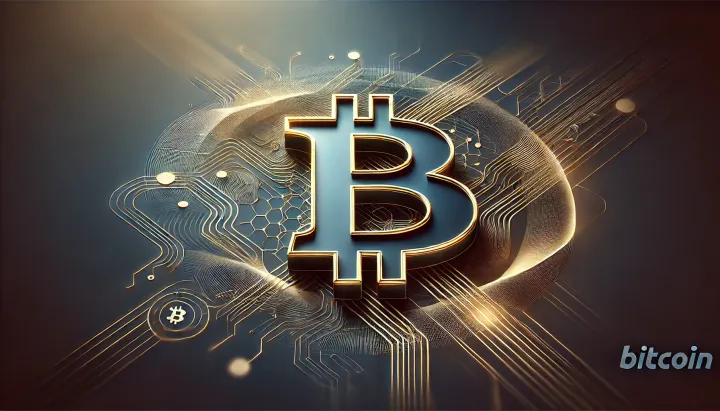Bitcoin Savings and Value Revolution
On April 10, 2025, the Robin Seyr Podcast featured Reese Murphy discussing how Bitcoin is reshaping traditional finance by serving as a secure savings technology and reducing counterparty risk.

- My 'briefing notes' summarize the content of podcast episodes; they do not reflect my own views.
- They contain (1) a summary of podcast content, (2) potential information gaps, and (3) some speculative views on wider Bitcoin implications.
- Pay attention to broadcast dates (I often summarize older episodes)
- Some episodes I summarize may be sponsored: don't trust, verify, if the information you are looking for is to be used for decision-making.
Summary
On April 10, 2025, the Robin Seyr Podcast featured Reese Murphy discussing how Bitcoin is reshaping traditional finance by serving as a secure savings technology and reducing counterparty risk. The conversation highlighted Bitcoin’s role as pristine collateral, its subjective valuation, and its potential for long-term institutional and retail adoption. These themes underscore critical shifts that may redefine value creation and risk management in the financial sector.
Take-Home Messages
- Savings Innovation: Bitcoin provides a secure means of preserving lifetime earnings, minimizing counterparty risk compared to traditional assets.
- Value Redefinition: Its worth is determined subjectively based on individual contexts rather than relying on an intrinsic measure.
- Institutional Challenges: Regulatory frameworks, governance issues, and ownership structures hinder broader institutional adoption.
- Secure Custody: Advanced self-custody techniques, including multisignature setups, are essential for protecting Bitcoin holdings.
- Market Dynamics: Bitcoin’s volatility is reframed as a natural mechanism for price discovery, offering long-term investment opportunities.
Overview
Reese Murphy explains that Bitcoin challenges conventional financial norms by dismissing the idea of intrinsic value in favor of a subjective assessment based on individual needs and market context. He underscores its primary role as a savings technology, enabling secure cross-border value transfer. This redefinition of value marks a departure from traditional asset valuation.
Have to add a note here - dismissing intrinsic value is absolutely normal in microeconomic theory. Value is based on subjective preferences, nothing else. Anyone who advocates for intrinsic value must have completely forgotten Econ 101.
The interview details Bitcoin’s potential as pristine collateral, highlighting its verifiability and trustless nature. Reese contrasts Bitcoin’s low counterparty risk with the higher risks inherent in traditional banking instruments. His analysis reveals how Bitcoin’s unique properties provide an alternative framework for asset security.
A significant portion of the discussion is devoted to self-custody practices. Reese emphasizes that robust security measures, such as multisignature setups, are critical to safeguarding Bitcoin. This focus on secure storage is presented as fundamental to both personal finance and corporate treasury strategies.
Reese also examines market dynamics, particularly how volatility serves as an opportunity for price discovery rather than a flaw. He discusses the evolving trends in institutional and retail adoption, noting the gradual shift from speculative trading to long-term accumulation. His insights suggest that a more informed public and proactive education could drive future adoption.
Stakeholder Perspectives
- Individual Savers: Prioritize secure, long-term preservation of wealth and reduced exposure to counterparty risks.
- Institutional Investors: Seek integration of Bitcoin into treasury functions while navigating regulatory and governance hurdles.
- Financial Regulators: Aim to develop frameworks that acknowledge Bitcoin’s unique attributes without stifling innovation.
- Corporate Decision-Makers: Evaluate Bitcoin’s role as collateral and store of value against traditional asset classes.
- Bitcoin Educators: Stress the need for clear, accessible information to bridge knowledge gaps and enhance informed adoption.
Implications and Future Outlook
The discussion signals that Bitcoin’s evolution as a savings technology may drive important changes in financial behavior. As institutions and individuals increasingly value its counterparty risk reduction and secure self-custody features, traditional finance could see a gradual pivot towards decentralized value storage. These shifts suggest that strategic policy adjustments might be necessary to accommodate an evolving asset class.
Reese’s insights on subjective valuation and collateral potential underscore a future where Bitcoin redefines how value is perceived and utilized. The anticipated growth in both institutional allocations and informed retail participation may lead to more stable, long-term market trends. Enhanced education and regulatory clarity will be essential to support this transition.
Looking ahead, technical developments such as Layer 2 scaling solutions, the Lightning Network and others, are expected to play a critical role. These innovations, along with improved market education and evolving governance models, will likely mitigate current scalability and adoption challenges. Together, these factors point to a more resilient and integrated financial ecosystem centered on Bitcoin.
Some Key Information Gaps
- How does the subjectivity of Bitcoin’s value impact public and investor perceptions? This question is critical because it addresses the fundamental way value is assigned and understood in the Bitcoin ecosystem. Clarifying this helps shape communication strategies for both policy and investor education.
- How does Bitcoin's design promote long-term savings compared to traditional banking assets? This inquiry is essential as it underpins Bitcoin's main value proposition as a savings vehicle. Its answer could guide financial planning and regulatory approaches by emphasizing stability over short-term gains.
- What factors most hinder institutional adoption of Bitcoin? This question is important as institutional adoption is key to scaling Bitcoin’s impact on global finance. Understanding these factors can inform both corporate strategy and policy adjustments.
- How effective are layer 2 solutions in addressing scalability concerns for global Bitcoin adoption? This question is significant in examining the technical evolution needed to support broader usage. Answering it has implications for network efficiency, user experience, and future growth potential.
- What are the most significant educational gaps that impede broader Bitcoin adoption? This inquiry is vital for fostering a well-informed public and investor base. Addressing these gaps can accelerate adoption and ensure that stakeholders make decisions based on a nuanced understanding of Bitcoin.
Broader Implications for Bitcoin
Strategic Reserve Potential
Bitcoin’s evolving role as a secure savings technology may prompt nation-states and large institutions to reexamine their reserve asset strategies. The reliance on sound money over traditional fiat assets could reshape international monetary policies. Such a shift would encourage the development of regulatory frameworks that integrate decentralized assets without compromising national economic security.
Decentralized Financial Governance
The broadcast highlights the need for new governance models that can accommodate Bitcoin’s unique attributes. This evolution could diminish overreliance on intermediaries and foster direct, peer-to-peer financial interactions. As stakeholders adapt, the shift towards decentralized decision-making may enhance transparency and resilience in the broader financial ecosystem.
Innovation in Risk Management
Reframing volatility as an opportunity rather than a risk suggests a different approach to financial risk management (e.g., MicroStrategy). Bitcoin’s ability to lower counterparty risk may inspire new investment strategies that prioritize security and long-term value accumulation. This reorientation could influence how traditional assets are evaluated and managed in light of emerging digital alternatives.
Broader Economic Impact
As Bitcoin’s adoption scales, the traditional balance between liquid assets and long-term savings might be disrupted. The shift towards a decentralized store of value could spur changes in consumer behavior, investment strategies, and economic policy. The resulting adjustments may lead to a more resilient financial system that better withstands macroeconomic shocks.



Comments ()